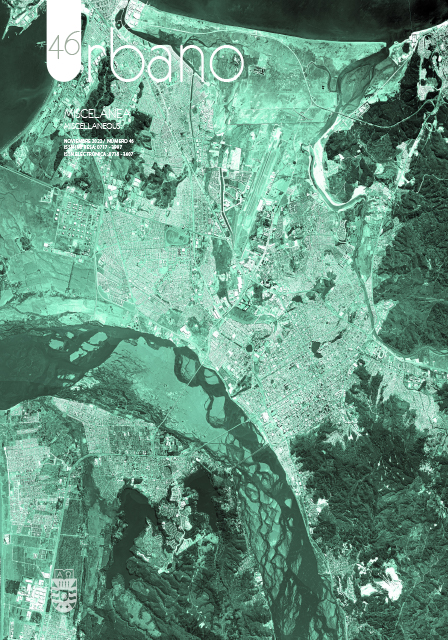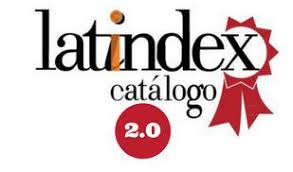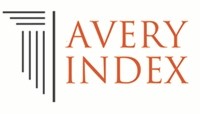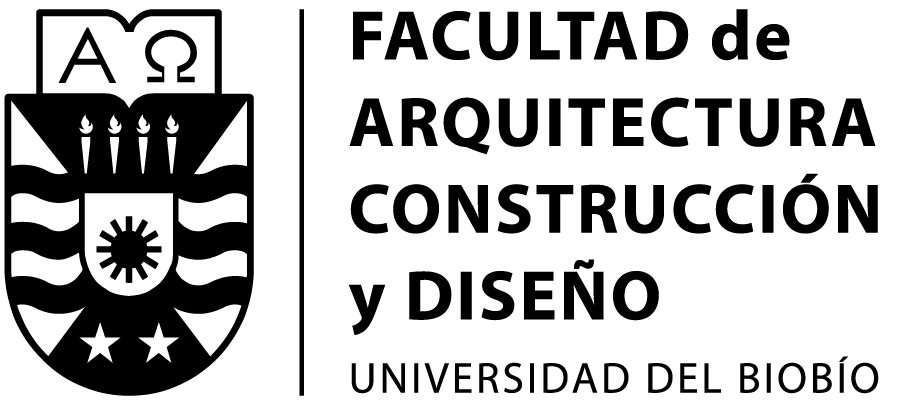Planning the rural urban fringe of Santa Eufemia, Córdoba, Argentina
DOI:
https://doi.org/10.22320/07183607.2022.25.46.03Keywords:
spatial planning, peri-urban, participative design, discrete multi-criteria analysisAbstract
This article seeks to show how to design and evaluate the territorial strategic vision of the Rural-Urban Fringe (RUF) in Santa Eufemia, Córdoba, Argentina. The methodology is based on a multi-phase multi-criteria procedure for the municipal government and the actors involved. In phase 1, local problems (opportunities) and aspirations were identified through in-depth interviews. In phase 2, a menu of alternatives was designed and assessed for two strategic decisions that emerged within the interviews, namely, rainwater drainage and local food provision. In phase 3, the actors’ preferences were revealed, and the alternatives were evaluated using the Promethee algorithm. The chosen alternatives were included in the RUF vision and complemented three structural decisions (location of an industrial park, future urban settlements, and waste management). Compared with the prognosis, the alternatives chosen, have a better performance, although some limitations are recognized. One of the alternatives reduces the water runoff that could potentially affect the locality by 50%. Another alternative increases local food production by 27%, generating an economic surplus (12 jobs) and significantly minimizing the risks of zoonotic diseases and agrochemical contamination. However, the alternatives require more investment and an increased institutional political effort than in the prognosis. Finally, the actors appreciated the alternatives designed with the three sustainability dimensions (comparison criteria) and agreed to move forward on a compromise decision about the RUF vision.
Downloads
References
BALDINI, C., MARASAS, M. E., TITTONELL, P. Y DROZD, A. A. (2022). Urban, periurban and horticultural landscapes – Conflict and sustainable planning in La Plata district, Argentina. Land Use Policy, 117, 106-120. DOI: https://doi.org/10.1016/j.landusepol.2022.106120
BARBA-ROMERO, S. (1996). Manual para la toma de decisiones multicriterio. Santiago de Chile: ILPES.
BARÓ, F., GÓMEZ-BAGGETHUN, E. Y HAASE, D. (2017). Ecosystem service bundles along the urban-rural gradient: Insights for landscape planning and management. Ecosystem Services, 24, 147-159. DOI: https://doi.org/10.1016/j.ecoser.2017.02.021
BOCCOLINI, S. M. Y GIOBELLINA, B. (2018). Reconstrucción histórica del territorio periurbano de producción hortícola de Córdoba, Argentina (1573-1900). Eutopía. Revista De Desarrollo Económico Territorial, (14), 83-110. DOI: https://doi.org/10.17141/eutopia.14.2018.3577
BOGGIA, A., MASSEI, G., PACE, E., ROCCHI, L., PAOLOTTI, L. Y ATTARD, M. (2018). Spatial multicriteria analysis for sustainability assessment: A new model for decision making. Land Use Policy, 71, 281-292. DOI: https://doi.org/10.1016/j.landusepol.2017.11.036
BRANS, J.P. Y MARESCHAL, B. (2005). PROMETHEE METHODS. EN J. FIGUEIRA, S. GRECO Y M. EHRGOTT (Eds.), Multiple criteria decision analysis: state of the art surveys (pp. 163-196). Boston Springer.
CAHE, E. Y DE PRADA, J. (2019). Análisis Multicriterio y Selección de Propuestas de Gestión de Residuos Sólidos Urbanos. Revista Iberoamericana de Economía Ecológica, 29, 53-56.
CAHE, E. Y DE PRADA, J. (2022). Evolución de la expansión urbana y riesgos para la agricultura de proximidad en el sur de Córdoba, Argentina. EURE - Revista de Estudios Urbano Regionales, 48(144), 1-21. DOI: https://doi.org/10.7764/EURE.48.144.11
CASH, C. (2014). Towards achieving resilience at the rural–urban fringe: the case of Jamestown. En South Africa Urban Forum, 25, (pp. 125-141). Springer. DOI: https://doi.org/10.1007/s12132-013-9204-2
CATTIVELLI, V. (2021). Planning peri-urban areas at regional level: The experience of Lombardy and Emilia-Romagna (Italy). Land Use Policy, 103, 105282. DOI: https://doi.org/10.1016/j.landusepol.2021.105282
DE PRADA, J. D., DEGIOANNI, A., CISNEROS, J. M., GIL, H. A., PLEVICH, J. O., CHILANO, Y., … Y CANTERO G., A. (2014). Análisis multicriterio y selección interactiva del uso agrario de aguas residuales tratadas, Adelia María, Córdoba. European Scientific Journal, 10(2) 419-441. DOI: https://doi.org/10.19044/esj.2014.v10n2p%p
DE PRADA, J., DEGIOANNI, A., CANTERO, A., TELLO, D., GIL, H., CAHE, E., … Y PEREYRA, C. (2017). Procedimiento multicriterio en fases para la construcción de la visión territorial local. Aplicación en la localidad de Santa Eufemia, Córdoba, Argentina. Revista Argentina de Economía Agraria, 17(1), 6-30. Recuperado de https://raea.com.ar/revistaaaea_arg/article/view/23
DÍAZ-BRAVO, L., TORRUCO-GARCÍA, U., MARTÍNEZ-HERNÁNDEZ, M. Y VARELA-RUIZ, M. (2013). La entrevista, recurso flexible y dinámico. Investigación en Educación Médica, 2, 162-167.
GALLENT, N. (2006). The Rural–Urban fringe: A new priority for planning policy? Planning Practice & Research, 21(3), 383-393. DOI: https://doi.org/10.1080/02697450601090872
GENELETTI, D., LA ROSA, D., SPYRA, M. Y CORTINOVIS, C. (2017). A review of approaches and challenges for sustainable planning in urban peripheries. Landscape and Urban Planning, 165, 231-243. DOI: https://doi.org/10.1016/j.landurbplan.2017.01.013
GÓMEZ OREA, D. (2008). Ordenación territorial. 2da Edición. Madrid: Mundi Prensa.
Hedblom, M., Andersson, E. y Borgström, S. (2017). Flexible land-use and undefined governance: From threats to potentials in peri-urban landscape planning. Land Use Policy, 63, 523-527. DOI: https://doi.org/10.1016/j.landusepol.2017.02.022
HERMIDA, G. C. (2015). Agroforesteria periurbana una opción para la producción sustentable en los alrededores de Buenos Aires. Revista Scientia Agroalimentaria, 2, 7-17. Recuperado de http://revistas.ut.edu.co/index.php/scientiaagro/article/view/740
INOSTROZA, L. (2017). Informal urban development in Latin American urban peripheries. Spatial assessment in Bogotá, Lima and Santiago de Chile. Landscape and Urban Planning, 165, 267-279. DOI: https://doi.org/10.1016/j.landurbplan.2016.03.021
JESIYA, N. P. Y GOPINATH, G. (2020). A fuzzy based MCDM–GIS framework to evaluate groundwater potential index for sustainable groundwater management - A case study in an urban-periurban ensemble, southern India. Groundwater for Sustainable Development, 11. DOI: https://doi.org/10.1016/j.gsd.2020.100466
LA ROSA, D., GENELETTI, D., SPYRA, M., ALBERT, C. Y FÜRST, C. (2018). Sustainable Planning for Peri-urban Landscapes. En Perera, A., Peterson, U., Pastur, G. y Iverson, L. (Eds.). Ecosystem Services from Forest Landscapes (pp, 89-126). Cham: Springer. DOI: https://doi.org/10.1007/978-3-319-74515-2_5
LE BIVIC, C. Y MELOT, R. (2020). Scheduling urbanization in rural municipalities: Local practices in land-use planning on the fringes of the Paris region. Land Use Policy, 99, 105040. DOI: https://doi.org/10.1016/j.landusepol.2020.105040
LIU, Y., LV, X., QIN, X., GUO, H., YU, Y., WANG, J. Y MAO, G. (2007). An integrated GIS-based analysis system for land-use management of lake areas in urban fringe. Landscape and Urban Planning, 82(4), 233-246. DOI: https://doi.org/10.1016/j.landurbplan.2007.02.012
LONDOÑO CADAVID, C. Y ANDO, A. W. (2013). Valuing preferences over stormwater management outcomes including improved hydrologic function. Water Resources Research, 49(7), 4114-4125. DOI: https://doi.org/10.1002/wrcr.20317
NANNINGA, T. A., BISSCHOPS, I., LÓPEZ, E., MARTÍNEZ-RUIZ, J. L., MURILLO, D., ESSL, L. Y STARKL, M. (2012). Discussion on Sustainable Water Technologies for Peri-Urban Areas of Mexico City: Balancing Urbanization and Environmental Conservation. Water, 4(3), 739-758. DOI: http://dx.doi.org/ https://www.mdpi.com/2073-4441/4/3/739
OTZEN, T. Y MANTEROLA, C. (2017). Técnicas de muestreo sobre una población a estudio. International Journal of Morphology, 35, 227-232.
SCOTT, A. J., CARTER, C., REED, M. R., LARKHAM, P., ADAMS, D., MORTON, N., … Y COLES, R. (2013). Disintegrated development at the rural–urban fringe: Re-connecting spatial planning theory and practice. Progress in Planning, 83. DOI: https://doi.org/10.1016/j.progress.2012.09.001
SMITH, J. P., MEEROW, S. Y TURNER, B. L. (2021). Planning urban community gardens strategically through multicriteria decision analysis. Urban Forestry & Urban Greening, 58, 126897. DOI: https://doi.org/10.1016/j.ufug.2020.126897
STOCK, C., BISHOP, I. D. Y GREEN, R. (2007). Exploring landscape changes using an envisioning system in rural community workshops. Landscape and Urban Planning, 79(3), 229-239. DOI: https://doi.org/10.1016/j.landurbplan.2006.02.010
USDA-SCS (1968). A Method for Estimating Volume and Rate of Runoff in Small Watershed. Washington, D.C.: USDA Soil Conservation Service.
VARGAS-LAMA, F. Y OSORIO-VERA, F.-J. (2020). The Territorial Foresight for the construction of shared visions and mechanisms to minimize social conflicts: The case of Latin America. Futures, 123. DOI: https://doi.org/10.1016/j.futures.2020.102625
ŽLENDER, V. (2021). Characterisation of peri-urban landscape based on the views and attitudes of different actors. Land Use Policy, 101. DOI: https://doi.org/10.1016/j.landusepol.2020.105181
ZULAICA, L. Y FERRARO, R. (2013). Lineamientos para el ordenamiento del periurbano de la ciudad de Mar del Plata (Argentina), a partir de la definición de sistemas territoriales. Geografía em questao, 6(1), 202-230. DOI: https://doi.org/10.48075/geoq.v6i1.6731.
Downloads
Published
How to Cite
Issue
Section
License
Copyright (c) 2022 Emiliano Javier Cahe, Jorge Dante De Prada

This work is licensed under a Creative Commons Attribution-ShareAlike 4.0 International License.
The content of articles which are published in each edition of Habitat Sustentable, is the exclusive responsibility of the author(s) and does not necessarily represent the thinking or compromise the opinion of University of the Bio-Bio.
The author(s) conserve their copyright and guarantee to the journal, the right of first publication of their work. This will simultaneously be subject to the Creative Commons Recognition License CC BY-SA, which allows others to share-copy, transform or create new materials from this work for non-commercial purposes, as long as they recognize authorship and the first publication in this journal, and its new creations are under a license with the same terms.![]()























